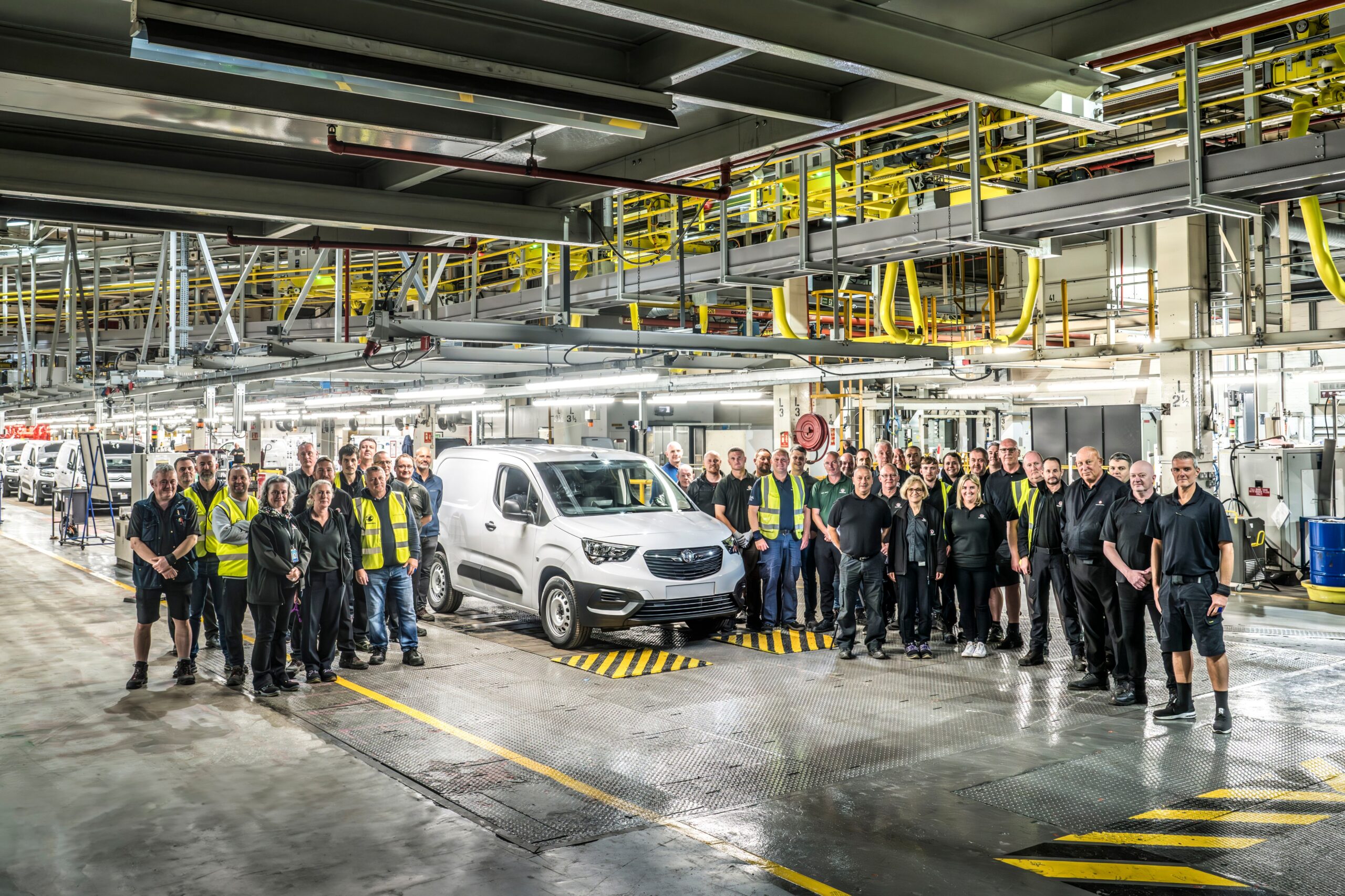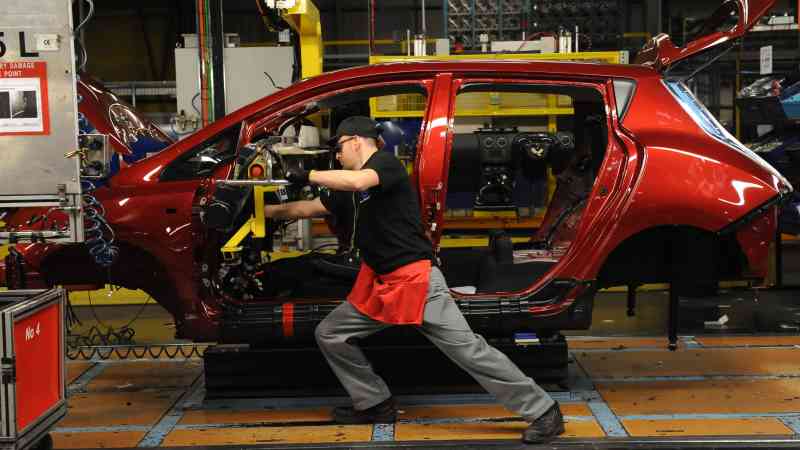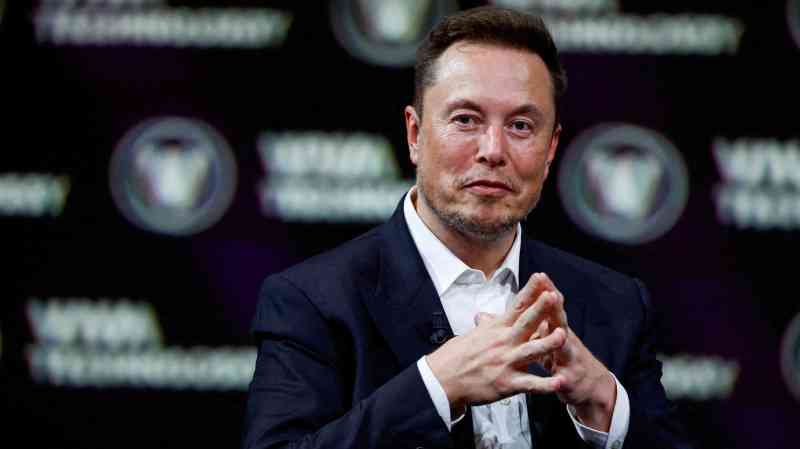UK electric car market at crossroads as Stellantis threatens to quit
The debate about the state of the electric car market in Britain is becoming polarised. For some the UK has one of the most vibrant zero-emission vehicle markets in Europe. Others see only dislocated policy with the private buyer locked out by significant affordability issues.
The country goes into next week’s general election with one of its largest electric automotive manufacturers saying that it could quit the UK over the state of the market. This is the current data: in the first five months of the year 133,000 new electric cars were registered, growth of nearly 10 per cent year on year. At that rate the UK should end the year with 350,000 new electric cars on the road, about 25 per cent more than in 2022.
The UK is on a trajectory that could result in it being the single largest electric car market in Europe, only 7,000 short in the first five months of the 140,000 in Germany, which in recent months has recorded sharp declines.
• The Times view on Labour’s car emissions plan: Electric shock
So far, so healthy for the UK electric car market but if you compare electric registrations to the total marketplace in new cars, you get a different outlook.
In the year to date electric cars account for 16.1 per cent of all new registrations: one in every six cars. That is lower than the 16.9 per cent the market recorded in the second half of 2023, six months that had to absorb the shock of Rishi Sunak’s autumn decision to put back the ban on petrol and diesel cars to 2035 from 2030. That prompted the recent multi-month slowdown in electric sales growth as the consumer took stock of whether they could go zero-emission later rather than sooner.
The 16.1 per cent in 2024 also compares poorly with the rate of take up in the second half of 2022, when electric cars captured 18.7 per cent of the market as the first big quarterly shipments of Teslas started hitting the shores of Britain.
In new electric car penetration, the UK is behind economies such as Belgium at 23 per cent and the Netherlands at 30 per cent.
Cut the figures another way, moreover, and the number of electric cars being bought by private buyers in Britain is in sharp decline. In the second half of 2022 private buyers accounted for less than 30 per cent of electric cars bought, the rest going to motorists taking advantage of beneficial company car tax arrangements through fleet ownership or by salary sacrifice schemes.
That private buyer figure has now fallen to about 15 per cent. In actual numbers that means that the 42,000 electric cars acquired by private buyers in the second half of 2022 has dwindled to an estimated 28,000 in the first half of 2024, one third lower.
All that presents two interlinked issues for policymakers and manufacturers: how does the electric car market get on track to the 22 per cent target set on manufacturers by the UK zero-emission vehicle (ZEV) mandate? This quota rises to 28 per cent in 2025 and accelerates to 80 per cent by 2030 replete with fines of £15,000 for every car that a manufacturer falls short of selling as electric. And how are private buyers going to be cajoled into buying electric?
Policy in the UK to date has been presented as about decarbonisation of road transport and hitting legally binding net-zero targets, or more altruistically about public health and a cleaner environment. The tenor of the debate has changed. Set aside very real arguments about the smaller journey range of electric vehicles and the failure of the installed public recharging network to keep pace with the number of electric cars on the road, the issue is also about affordability.
Or put another way, private buyers will buy electric in significant numbers only if the cars are priced at the same level as their petrol equivalent. The argument from the motor industry is simple: government stimulus. Taxpayer handouts have already been abandoned by the UK and diverting the public purse would not be popular among those who do not want an electric car.
So the alternative ask is for fiscal incentives. This probably involves at the least the cutting of VAT on electric cars and some form of mechanism that allows the private buyer the same benefits as those in corporate schemes.

Into all this the automotive giant Stellantis has lobbed an incendiary. It has declared that if the UK does not sort out its electric vehicle market it may continue to sell cars in Britain but could close its two automotive factories in the UK, the historic plants at Luton in Bedfordshire and Ellesmere Port in Cheshire, which together employ 2,500 and are pillars of the country’s automotive ecosystem.
On the face of it, it is a strange interjection. In the UK Stellantis is a van manufacturer producing 90,000 Vauxhall, Peugeot, Citroen and Fiat branded vehicles a year in Luton, which is due to start the transition to electric vans next year. At Ellesmere Port it has converted the old Vauxhall Astra factory to Europe’s first all-electric vehicle plant, having assembled 8,500 zero-emission vans in its first nine months in production.
The beef of Stellantis is that the ZEV mandate for cars is having an impact on its wider business. It is behind several of the other European legacy brands in the production of electric cars. At present delivery rates it could miss the ZEV mandate by as many as 20,000 vehicles and face fines of as much as £300 million.
Maria Grazia Davino, the Italian executive who heads Stellantis UK, has said her company will not pay fines. Its only alternative is to stop sending petrol cars produced on the Continent to the UK and give up a large chunk of its 14.7 per cent market share in Britain so that it can artificially hit the ZEV mandate target. None of which is good for Stellantis, which needs to make money from petrol cars so it can invest faster in its electric transition.
Stellantis feels particularly aggrieved because it is not getting any mitigation or derogation from the ZEV mandate when it is not only a big investor in the UK automotive economy, but leading the way in the electrification of the country’s automotive landscape. The warning boils down to this: Stellantis will pull out of UK production unless the UK government does something about promoting the uptake of electric vehicles and stops being a “hostile environment”.
“It is not a threat,” Davino said, correcting the widespread interpretation of her apparent ultimatum. “We have been very clear and very direct with the government but we did not get the expected reaction. This is not just a Stellantis issue.”
She said closing factories was “the worst scenario, an extreme consequence” but all the same “a possible consequence”.
The Energy & Climate Intelligence Unit think tank reckons that Stellantis is rewriting history. It says the company signed up to the ZEV mandate and is complaining now only because it has fallen behind several of its peers. And, it points out, Ellesmere Port was converted to an electric van factory with UK taxpayer support and it is now asking for more.
ManMohan Sodhi, an industrial professor at the University of London’s Bayes Business School, formerly known as Cass, said the intervention of Stellantis showed that UK policy was in a bind and at odds with the “flexible approach” in the EU where manufacturers can meet CO₂ emissions reduction requirements by selling a mixture of hybrid electric vehicles. “Stellantis is only the first auto company to take its complaint against UK requirements directly to the public; others will surely follow,” he said.
“This present situation is another consequence of Brexit with UK regulation not only different but also much more restrictive than the EU’s and without consideration of the end goal of emissions reduction. There is no point making electric cars or vans that can’t be sold in the UK to reluctant end consumers.”
Of course, the whole UK consumer landscape could be changed with the expected influx of “affordable” Chinese-made electric vehicles in the second half of this year. Yet if Stellantis follows through and decides to quit its factories, the loser will be British industry.
If the government wants market change, it must help to deliver it
Half the cars on our roads could be zero emission by 2035, if the next government works in partnership with industry and consumers (Mike Hawes writes).
The automotive industry has been given a deadline to end the UK sale of conventional petrol and diesel cars and vans: 2035 — matching that of the European market.
We have also been given a steep trajectory. By law, a minimum proportion of each brand’s new UK car and van sales must be zero-emission vehicles (ZEVs), rising from 22 per cent for cars in 2024 to 80 per cent in 2030. Worryingly, ZEV market share has plateaued at 16-17 per cent.
The vehicles are ready. More than 100 models are available with an average range double the typical weekly mileage. But mandates don’t make markets. You can compel sale, not demand. To inspire change, consumers need encouragement.
However, consumer incentives ended in 2022. While ZEV running costs are usually lower than their fossil fuel-powered forebears, upfront costs remain higher. Manufacturers are working hard to reduce prices but batteries require expensive raw materials; 40 per cent of the cost of a ZEV is the battery compared with 15 per cent for the conventional engine and transmission.
Fleet and business demand for ZEVs is rising, driven by attractive tax incentives. But without greater overall consumer demand, heavy fines for manufacturers loom with the consequent risk of constraining Britain’s new car market which could deter investment.
Almost two million ZEVs are likely to join the road in the next three years. Manufacturers are offering incredible deals to stimulate demand but cannot underwrite an entire market shift indefinitely.If governments choose to regulate market change, they must help to deliver it. Halving VAT for three years would add a further 300,000 new ZEVs to UK roads instead of petrol and diesel ones. This would send a clear message to consumers, build supply for the used market and accelerate decarbonisation.
Infrastructure is growing, with more than 60,000 public charge-points across the UK, but legally binding targets for charge-point rollout would accelerate universal coverage. Furthermore, cutting public charging VAT from 20 per cent to 5 per cent — like home charging — would increase affordability.
Finally, ZEVs are essentials — which should be reflected in the vehicle excise duty system, rather than levying a supplement designed for luxury vehicles. The potential prize is massive. Three in every 100 cars in Britain are currently ZEVs. With the right support, that will be one in two in 2035. And they can be increasingly British built, as £22 billion worth of investment announced last year alone is realised in ZEV and battery manufacturing.
Inaction will cost the nation. It will mean noisier streets, poorer air quality, lower growth and an inability to meet our net-zero goals.
The smart move is to partner with industry and back the consumer, giving us a clear road to a cleaner, greener, fairer and more prosperous future.
Mike Hawes is the chief executive of the SMMT




Post Comment